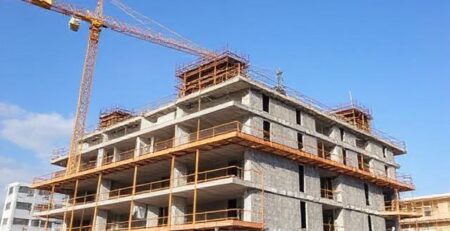Property Valuation And Its Impact On Home Loan Approvals 2023
Property valuation is a procedure to determine the present market value of the real estate property. The process incorporates the evaluation of numerous factors that influence the property’s worth like size, features, location, condition, comparable properties recent sales, current market trends, etc. Property valuations are typically performed by valuation experts.
In this guide, we will be going to study the property valuation process and the impact of property valuation on home loan approval. Let’s get started with it! Happy Reading!
Property Valuation Process
- Valuation Experts: Lenders engage certified appraisers to evaluate the property’s value. These experts are trained and skilled enough to assess numerous factors that affect the property value.
- Property Inspection: The valuer inspects the complete property physically to gather data regarding its size, features, property, condition, or any recent modifications.
- Market Research: Valuers perform complete research on the current sales data of similar properties within the area. This, in turn, helps them in establishing a fair market value on the basis of property attributes as well as existing market conditions.
- Valuation Methods: Valuers make use of numerous methods including the income approach, cost approach, and sales comparison approach for determining the value of property. They may apply different methods on the basis of property’s nature and marketplace dynamics.
- Valuation Report: The valuer compiles the findings into a comprehensive report that incorporates valuation methods used, a description of the property, and data on similar properties as well as the final assessed value.
Impact on Home Loan Approvals
The property valuation influence on home loan approval, no doubt, is substantial. Property valuation influences numerous aspects of the process of loan approval directly and plays an imperative role in defining the loan terms and conditions. Let’s see how home loan approvals are affected by the property’s valuation.
- Loan Amount: The appraised property value is the important factor in deciding the maximum amount of loan the lender is ready to offer. In general, lenders provide the loans as the proportion of the appraised property’s value. A greater property valuation can result in a higher loan amount whereas a lower valuation may result in a reduced loan amount,
- Loan Approval Decision: If the assessed value coincides with the value for refinancing, the process of approving the loan will get much smoother. Lenders are more interested in approving the loans when the property’s value aligns with the requested loan amount. A lower property valuation could result in an increased loan-to-value ratio, encouraging the borrower to make a substantial down payment to fulfill the LTV requirements of the lender.
- Negotiations and Down Payment: Property valuations can influence negotiations among the buyers and sellers. Like; if the property is evaluated lower as compared to the purchase price, in this case, the buyer may have the leverage for negotiating a more favorable purchase price. This, in turn, can result in reduced need for the lower down payment thus making it simpler for a buyer to secure the necessary funding.
- Risk Assessment: Lenders evaluate the risk on the basis of the property’s value. The lower valuation might seem much riskier since the borrower is looking for a loan that constitutes a high portion of the property’s value; which could result in stricter terms, much higher interest rates, and even the loan denial.
Wrapping Up
Property valuation is an essential factor in case of the home loan approval process. Since it affects the LTV ratio, down payment requirements, loan amount, and overall loan terms, so, it’s suggested for borrowers to closely work with the lenders and ask for professional advice if required.







